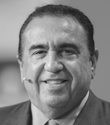Non-Hodgkin lymphoma (NHL) comprises a heterogeneous group of lymphoproliferative disorders and is one of the most rapidly evolving fields in hematology and oncology. In 2012, the numbers of estimated new cases of NHL and chronic lymphocytic leukemia (CLL) in the United States were 70,130 and 16,060, respectively, with approximately 23,000 deaths estimated from these diseases. Increasingly, the age of patients diagnosed with NHL has risen during the past 2 decades, which may result in more significant comorbid conditions that will complicate treatment. Published results from ongoing clinical trials lead to the continual emergence of new therapeutic agents and changes in the use of existing treatments. To provide oncology nurses with therapeutic strategies to address the disparate needs of patients with NHL/CLL, the Oncology Nursing Update audio series employs one-on-one interviews with medical oncologists and nurses who are experts in caring for patients with NHL/CLL. Upon completion of this CNE activity, oncology nurses should be able to formulate an up-to-date and more complete approach to the care of patients with NHL/CLL.
ACCREDITATION STATEMENT
Research To Practice is accredited as a provider of continuing nursing education by the American Nurses Credentialing Center’s Commission on Accreditation.
CME credit is no longer available for this issue
CREDIT DESIGNATION STATEMENT
CME credit is no longer available for this issue
HOW TO USE THIS CNE ACTIVITY
This is an audio CNE program. Participants should read the learning objectives and faculty disclosures and listen to the audio MP3s.
CME credit is no longer available for this issue
CONTENT VALIDATION AND DISCLOSURES
Research To Practice (RTP) is committed to providing its participants with high-quality, unbiased and state-of-the-art education. We assess potential conflicts of interest with faculty, planners and managers of CNE activities. Real or apparent conflicts of interest are identified and resolved through a conflict of interest resolution process. In addition, all activity content is reviewed by both a member of the RTP scientific staff and an external, independent reviewer for fair balance, scientific objectivity of studies referenced and patient care recommendations.
FACULTY — The following faculty (and their spouses/partners) reported real or apparent conflicts of interest, which have been resolved through a conflict of interest resolution process:
Amy Goodrich, CRNP-AC
Nurse Practitioner
Johns Hopkins Kimmel Cancer Center
Baltimore, Maryland
No real or apparent conflicts of interest to disclose.
Mitchell R Smith, MD, PhD
Director of Lymphoid Malignancies Program at Taussig Cancer Institute
Cleveland Clinic
Cleveland, Ohio
Advisory Committee: Cephalon Inc; Speakers Bureau: Allos Therapeutics, Cephalon Inc, Genentech BioOncology, Millennium: The Takeda Oncology Company, Spectrum Pharmaceuticals Inc.
Steven M Horwitz, MD
Assistant Attending
Lymphoma Service, Division of Hematologic Oncology
Memorial Sloan-Kettering Cancer Center
New York, New York
Advisory Committee: Allos Therapeutics, Celgene Corporation; Consulting Agreements: Allos Therapeutics, Bristol-Myers Squibb Company, Celgene Corporation, Kyowa Hakko Kirin Co Ltd, Seattle Genetics, Spectrum Pharmaceuticals Inc; Paid Research: Allos Therapeutics, Celgene Corporation, Kyowa Hakko Kirin Co Ltd, Millennium: The Takeda Oncology Company, Seattle Genetics, Spectrum Pharmaceuticals Inc.
Mollie Moran, MSN, CNP, AOCNP
The James Cancer Hospital at The Ohio State University
Columbus, Ohio
No real or apparent conflicts of interest to disclose.
EDITOR — Dr Love is president and CEO of Research To Practice, which receives funds in the form of educational grants to develop CME activities from the following commercial interests: AbbVie Inc, Algeta US, Allos Therapeutics, Amgen Inc, ArQule Inc, Astellas, Aveo Pharmaceuticals, Bayer HealthCare Pharmaceuticals, Biodesix Inc, Biogen Idec, Boehringer Ingelheim Pharmaceuticals Inc, Bristol-Myers Squibb Company, Celgene Corporation, Daiichi Sankyo Inc, Dendreon Corporation, Eisai Inc, EMD Serono Inc, Foundation Medicine Inc, Genentech BioOncology, Genomic Health Inc, Gilead Sciences Inc, Incyte Corporation, Lilly USA LLC, Medivation Inc, Merck, Millennium: The Takeda Oncology Company, Mundipharma International Limited, Novartis Pharmaceuticals Corporation, Onyx Pharmaceuticals Inc, Prometheus Laboratories Inc, Regeneron Pharmaceuticals, Sanofi, Seattle Genetics, Spectrum Pharmaceuticals Inc and Teva Oncology.
RESEARCH TO PRACTICE STAFF AND EXTERNAL REVIEWERS — The scientific staff and reviewers for Research To Practice have no real or apparent conflicts of interest to disclose.
This educational activity contains discussion of published and/or investigational uses of agents that are not indicated by the Food and Drug Administration. Research To Practice does not recommend the use of any agent outside of the labeled indications. Please refer to the official prescribing information for each product for discussion of approved indications, contraindications and warnings. The opinions expressed are those of the presenters and are not to be construed as those of the publisher or grantors.
This activity is supported by educational grants from Celgene Corporation and Genentech BioOncology/Biogen Idec.
Hardware/Software Requirements:
A high-speed Internet connection
A monitor set to 1280 x 1024 pixels or more
Internet Explorer 7 or later, Firefox 3.0 or later, Chrome, Safari 3.0 or later
Adobe Flash Player 10.2 plug-in or later
Adobe Acrobat Reader
(Optional) Sound card and speakers for audio
There is no implied or real endorsement of any product by RTP or the American Nurses Credentialing Center.






